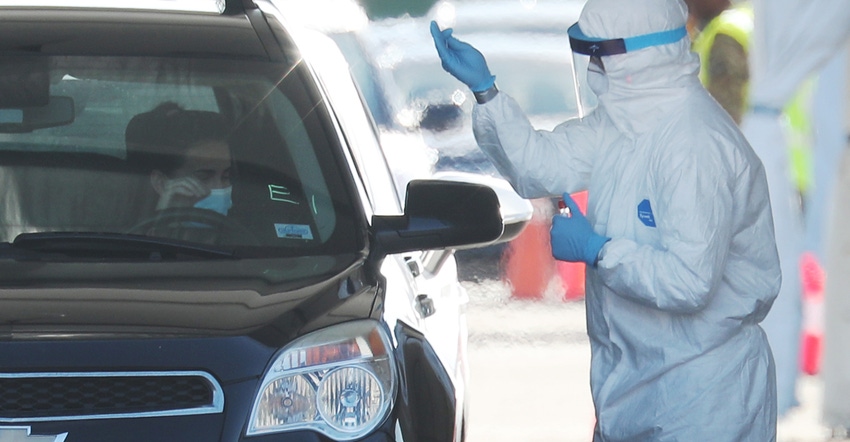April 1, 2020

“Lucky for us, things are quiet. Our street is empty. No one going anywhere. I’ve been out only twice this week. And that is how you slow the virus. It seems so powerless, I know. Don’t socialize — even for a quick chat that seems harmless. That leads to a longer visit, then a meal, with the thought, oh, it won’t happen to me. I’m healthy. I can take care of myself. But it’s a gamble that leads to this tweet (one among many);” — My daughter, Jessica, living in the epicenter of the COVID-19 pandemic in Brooklyn, N.Y. March 30, 2020.
The tweet referred to sums up the growing crisis at the time. “Hospital was full, ED overflowing, ambulances lined up to be triaged but no triage RN. I called FDNY to request diversion…
“Their response, “every single hospital in NYC is facing the same thing right now, we can’t grant permission for diversion. Call back tomorrow.”
This was reality in late March, in the heart of the nation’s crisis as the COVID-19 virus began its deadly exponential climb to new heights.
Rural Kansas is not ‘safe’
Back home, in flyover country, we may still feel somewhat secure and smug in our sense of isolation and remoteness. In Kansas, case numbers and deaths are not that large. Currently, it is mostly localized around the two major urban areas of Kansas City and Wichita, plus a few isolated cases in adjoining counties.
However, based on anecdotal evidence, some folks are not taking this threat too seriously. In addition, disinformation abounds regarding the severity of the crisis. On social media, it is not difficult to find anecdotal evidence suggesting it is a left-wing hoax, including media alleging the crisis in the nation’s cities is overblown due to a strange silence in the streets.
Jessica adds, “Taken out of context, one would think that there’s nothing wrong in our neighborhood. But anyone who lives here knows that something is wrong, because people actually live outside most of the time. Most of us don’t have cars. We walk everywhere. Need milk? You walk. You walk to the bodega. Need medication? You walk to the pharmacy. If people aren’t out it’s for a reason.
“The frantic activity is around hospitals. A [Facebook] friend in Queens talks about hearing sirens constantly, because she’s near a hospital.”
Asking ‘what-if’ questions
Appearances can be deceiving, even in calm, pleasant, flyover country. By the time this is in print, we should become more prepared. Time is of the essence. We must ask some “what if” questions:
Have I established a plan for isolation and good hygiene practices on my farm and in my home?
Do I have a family member who is a health care worker and must remain isolated from the rest of the family members? If yes, what is my plan for this?
Do I have a plan to put into motion to continue the work required on my farm if I or a family member becomes ill?
If testing positive, am I prepared to remain in quarantine for the required period? With the virus?
Who will take care of my livestock, who will harvest my crops, or who will plant, spray or cultivate them when necessary?
Will I be able to fully recover without permanent lung damage?
This virus is everywhere
Remember, this is a pandemic, not an isolated cold or flu. Chances are your neighbors will likely have to address these same questions as well. This is not something one can “power through” like a cold. This crisis may well stress community norms, especially if social distancing and good hygiene are unsuccessful in stemming the rate of infection.
In addition, local hospitals are unlikely to be prepared to receive even 1% of the population within a short timeframe. Meaning, all local emergency services will be at or above capacity while urban hospitals are still overloaded and unable to absorb the overflow.
Change has come in a big way. Not only does it affect every country on this planet, but every individual in every family, in every location. Today, we practice social distancing from friends and other family groups. Tomorrow, the next day, the next week and the week after that, we repeat this practice.
This is how we defeat the virus; we minimize exposure to its deadly grasp, even in farm country.
Penner is a Marion County farmer and past president of the National Association of Wheat Growers. His email is [email protected].
About the Author(s)
You May Also Like




